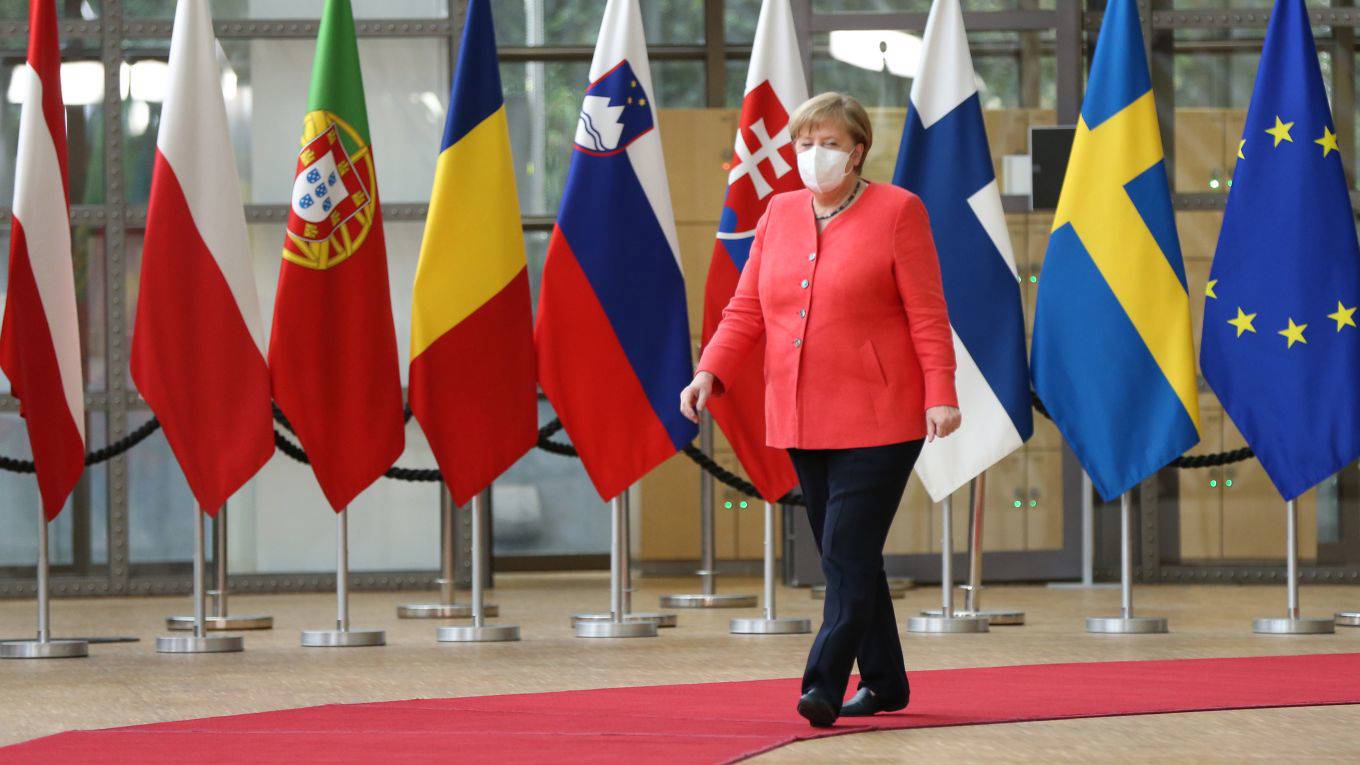MELVYN KRAUSS

NEW YORK – The second wave of COVID-19 infections has struck Europe harder than many expected. The hope of a V-shaped recovery has been replaced by the fear of a double-dip recession, implying that there will be no quick return to normal European Union budget rules. More worryingly, Europe now finds itself forced into a tradeoff between two objectives, both of which are critical to its long-term viability as a supranational political and economic bloc. Now more than ever, the EU’s commitment to the rule of law appears to be on the chopping block.
The news is not all bad. Owing to farsighted policy decisions by EU leaders, north-south relations within the Union are on a firmer footing than they have been for many years. One sign of this is that the spreads between German and Italian interest rates are at a record low, indicating that Italy’s position in the euro is now rock solid. “Spread anxiety” about the sustainability of the euro has abated across the entire southern tier of the eurozone.
Forget the political hurdles recently introduced by Central European member states with their threats to veto the EU’s budget and new COVID-19 recovery fund. Sustaining the long-awaited north-south political and economic convergence will be the EU’s top priority in the weeks and months ahead.
While the narrowing of interest-rate spreads initially reflected the European Central Bank’s quantitative-easing (QE) policies, it is the EU’s new recovery fund – dubbed Next Generation EU – that brought them to record lows. Investors have stopped selling the bonds of indebted southern countries because they realized that northern politicians, particularly in Germany, are willing to provide the support necessary (be it grants or loans) to prevent an unraveling of the euro.
Following the announcement of Next Generation EU came still more good news. In October, the European Commission’s first issuance of corona bonds with which to finance the program was vastly over-subscribed. Investors placed bids for more than €233 billion ($276 billion), far exceeding the initial €17 billion on offer. This market reaction sent an unambiguous signal that a fully funded €750 billion recovery program would soon be a reality.
Despite the over-subscription, Hungary and Poland have put the fund’s future in doubt by threatening to veto it unless the EU drops its demand that disbursement of EU funds be conditional on member states’ adherence to the rule of law. The fact that north-south spreads are remaining at record lows despite this fresh intra-EU political brouhaha reflects confidence that European politicians will work things out before a crucial summit on December 10-11, the final deadline for concluding a budget deal before 2021.
With the prize of north-south unity on the table, there will be intense pressure to buy off the two spoilers. Extortion is especially likely because Hungary and Poland both have the veto and the political will to use it. More to the point, both governments know that this is probably their last, best chance to forestall the imposition of conditionality on the disbursement of EU funds in the future.
The key player, as usual, is German Chancellor Angela Merkel. Now in the twilight of her long chancellorship, Merkel will not allow Next Generation EU – which is sure to be a major part of her legacy – to be derailed. Jeopardizing north-south solidarity and the newly achieved eurozone cohesion is simply too high a price to pay to stand up to Hungary and Poland.
Of course, there will be the usual political fig leaf. Hungary and Poland will pretend to commit to democratic principles (which they will continue to violate), and EU leaders will pretend to believe them. As such, the recovery fund will cost Europe a lot more than it should have.1
Still, in thinking about the long term, the European Commission’s bond auction brought good news for the ECB, which stands to benefit from an important spillover effect from the return of robust fiscal policy. Next Generation EU’s loans to indebted member states will take some of the pressure off the ECB after years of monetary policy doing all the heavy lifting.
According to Reuters, the ECB’s governing council is discussing how it might “offer less generous support for indebted governments when it puts together a further stimulus package next month, to push them to apply for European Union loans tied to productive investments.” By reducing the centrality of QE in supporting European solidarity, this outcome would finally make the ECB governing council a less contentious body.
This development is especially promising for the long term. ECB hawks and doves’ endless skirmishes over QE are not only tiresome; they have also undermined European solidarity at a time of Russian revanchism, US unpredictability, Chinese assertiveness, and all of the disruptions implied by Brexit. Against this grim geopolitical backdrop, the recovery fund’s promise to reduce divisiveness in the governing council could not be more welcome. It is no wonder that ECB President Christine Lagarde wants EU politicians to enshrine Next Generation EU as a permanent, rather than a temporary, policy mechanism.
Jean Monnet, one of the early exponents of European integration after World War II, famously observed that the European project “always moves forward through crisis.” In this sense, the pandemic represents a unique opportunity to advance European integration like never before. Even if Europe’s illiberal populists in Hungary and Poland appear to avoid accountability yet again, their position may be more tenuous in the future. An EU that no longer needs to worry about the euro’s collapse will have much more time, energy, and resolve to take on its enemies within.
No comments:
Post a Comment